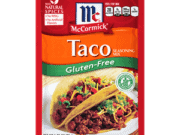Recently, researchers from Stanford University studied the differences between organic and non-organic food. Their conclusions seem to show a mixed bag on whether or not organic food is any healthier for us than conventional food. The researchers actually performed what is called a meta-analysis, which basically means a study that studies previous studies. Put far more simply, what the researchers did was analyze data from over 200 previous studies and then make conclusions based on their findings.
One tenet of organic foods is that they must be produced without the use of pesticides or antibiotics. The researchers in this study did find that organic food was much less likely to contain pesticide residues and antibiotic resistant bacteria. What effects food pesticides may have on human health are hard to nail down, but suffice it to say that using poisons to produce edible foods is probably not the best practice and certainly can’t be optimally healthy for us humans. And talk to any doctor and he or she will tell you that antibiotic resistant bacteria has been, and continues to be, a major problem in health care. This may be due in part to the use of antibiotics in producing conventional foods. So the fact that organic food was found to be much lower in pesticides and antibiotic resistant bacteria is definitely a score for the organic food camp.
However, when it came to nutrient and vitamin content, the Stanford researchers concluded that organic food did not differ significantly from non-organic food. Some slight differences were detected in phosphorous and omega-3 fatty acid content (organic having more than conventional). Apart from that though, the researchers concluded that no significant differences existed in vitamin and nutrient content. This may indicate that organic food is no more nutritious than non-organic food. But is that the case? Perhaps, but consider that vitamin/nutrient content is often studied in a lab. So, for instance, say that an organic peach and a non-organic peach were found to have similar levels of vitamin C and fiber in a lab. But what happens to the peach once it’s consumed by a human? It may be the case that the vitamins and nutrients in organically grown food are more bioavailable, meaning that the body is better able to use them. Or perhaps organic food contains more antioxidants. The take home point here is that just because something happens in a test tube or a Petri dish, this doesn’t mean that it happens that way in the human body. The system that is our body is far too dynamic and nutrient interactions are far too complex to conclude anything definitive from a laboratory study.
So we see that organic food does indeed contain less pesticides and antibiotic resistant bacteria, but about the same vitamin and nutrient content when compared to conventional food. But people buy organic food for far more reasons than simply nutrition. What about taste? What about social consciousness and a global movement toward being sustainable and responsible when it comes to producing food? Just as many people nowadays would rather spend a little more on a product made by workers who are paid fairly and treated well, people are also far more likely to buy an apple in a store if they know it was grown on a farm that uses only natural growing methods and isn’t poisoning the land.
A book I’d highly recommend, and one that will absolutely blow your mind is “The Secret Life of Plants” by Peter Tompkins and Christopher Bird. The book touches on an eclectic variety of topics, all of which are fascinating. The book, written in 1973, talks about the importance of organic farming far before most people even knew what that word meant. It talks about how many people nowadays show symptoms of non-specific poisoning, whether it is lethargy, general malaise, allergies, food intolerances, or even cancer. The book talks about these symptoms perhaps being the consequence of non-organic farming. We’re putting poisons into the ground and onto the food. Then we eat the food, get poisoned ourselves, and wonder what’s going on. The cycle of soil to food to human back to soil is not one to be taken lightly. So even if many studies conclude that organic food may not be more nutritious in a lab than non-organic food, this is not reason enough to stop buying organic. The organic food movement is a much broader movement than this, and about much more than nutrition. So take this and similar study’s findings somewhat with a grain of salt. Let them make yourself ask the question, “Self, why do you buy organic?” I think you’ll find your answer is about far more than simple nutrient content as measured in some test tube in a lab. It is about being responsible and kind toward the planet we all share and producing the most wholesome and pure food we can for ourselves as a people.
Article Courtesy: Andrew Steingrube







Let Us Know What You Think